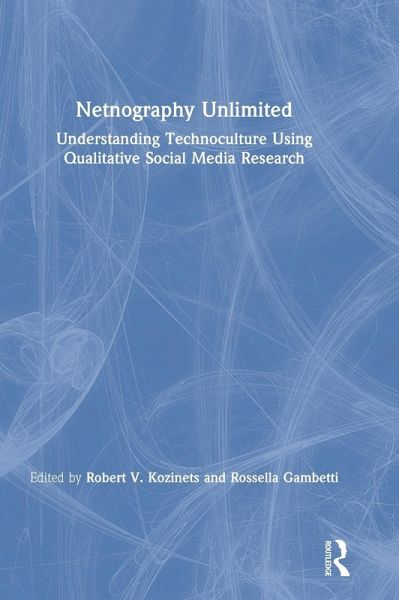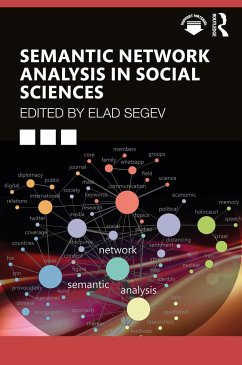
Netnography Unlimited
Understanding Technoculture using Qualitative Social Media Research
Herausgeber: Kozinets, Robert V.; Gambetti, Rossella
Versandkostenfrei!
Versandfertig in 1-2 Wochen
175,99 €
inkl. MwSt.
Weitere Ausgaben:

PAYBACK Punkte
88 °P sammeln!
Netnography has become an essential tool for qualitative research in the dynamic, complex, and conflicted worlds of contemporary technoculture. In this volume, thirty-two researchers present nineteen chapters that examine how they have adapted netnography and what those changes can teach us.














